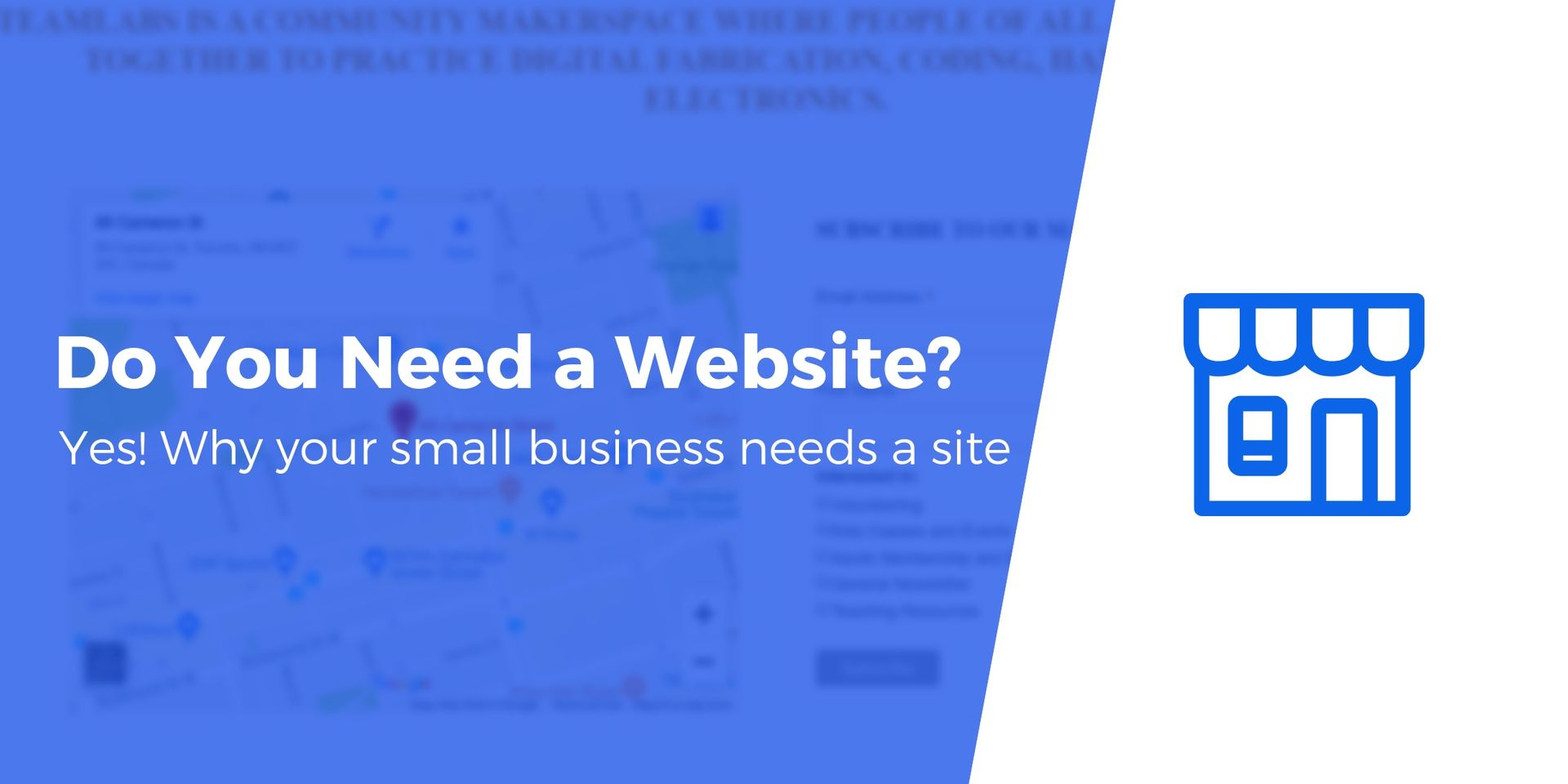


You may be thinking if your company has gone this far without a website: do I need a website for my business? What's the point if my company without one is already successful?
The simple response is that there has never been a better or more important moment for your company to invest in a website. For small enterprises, a website provides a wide range of advantages, and most of these advantages grow in value exponentially year by year, much like the Internet itself.
Now more than ever, customers want your company website to be able to find information about you. Before they make a purchase, most customers do study online, even though it's to buy something from their local store. If you don't have a website, it sends a message that your company is trapped in the Dark Ages, that you're not available anymore, or that you're not interested in finding new customers.
Customers now believe that a website makes the company more trustworthy than companies that only have accounts on social media. Your website is also the best place to demonstrate any technical certifications or achievements that your company has.
In addition, creating your own website helps you to build a branded email address (example: jack@yoursite.com) that brings to all your communications a level of professionalism, particularly if you have used a personal email address to conduct business so far.
It's nice to get user feedback and comments on other websites, but shouldn't you have the final say about how your business is represented to the public? Having a website for your business automatically provides an official internet profile, meaning you don't have to rely on anyone speaking for you. And, with your own logo and business identity, you can make things look just the way you want.
You may be satisfied with the current size of your company, but client churn is faced by any company. You should to gain new clients to encourage continued performance, and one of the easiest ways to do so is by making yourself visible on Google.
For a google search engine criteria, a well-optimized website will help the company rank well and gain a continuous flow of new customers. There are many free SEO resources that without any previous experience, make it easy to automate your website.
Having a modern, up-to-date website with a custom domain and other trustworthiness markers is important. A website also indicates that at a period where there is a lot of doubt, you are visible for company.
Before COVID-19 kept everyone trapped at home, online purchases were on the increase. After corporations reopen to clients, these developments are likely to continue. But you can also use an online shop to support your offline company, even though you don't think of yourself as a 'ecommerce' business. When you're closed in person, it will help supplement your sales and gain new customers who can now find your services and products through Google and other search engines.
To get their name out there even small companies that don't have a website still rely on Yellow Page ads or traditional advertising. But is buying an ad the best use of funds in ever-shrinking and increasingly costly directories, especially if you're trying to cut business costs? Websites cost significantly less than in the past, allowing you a broader scope than traditional ads.
Years earlier, if you wanted to launch a website, you could have some unpleasant memories of that past. It probably took a developer week to build, and then you were unable to make any improvements yourself. It could take forever for basic stuff like changing shop hours, so the data are obsolete.
A website is not only a platform for seeking clients across the world, it is also an important tool for attracting local clients. People are often searching for anything in the immediate area of Google searches. This is particularly true of cell phone users who when on-the-go, may be looking for a shop, restaurant, or other service. If you don't have a website, you're losing out on a chance to grab those tourists when they're right in your area.
If you have a website, it belongs to you and the content and the message are managed by you. Part of the reason you started your own company is that you don't have to follow the laws of other people, so why would you only do what you are told to do by a social media platform?
Trends change, too. If your customers are on Instagram now, tomorrow they may be on a different site. Your website serves as an anchor as individuals move from one tool to another. They will still find your website in the same location, open to all, no matter what social media app customers choose.
The case in today's world for making a website is very good. Nearly all the companies surveyed said that by the end of the year, they intended to create a website.
References